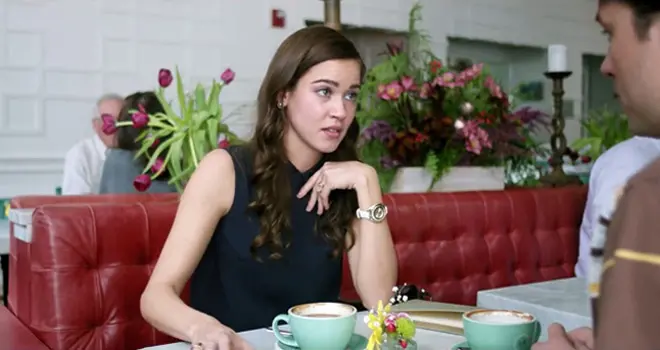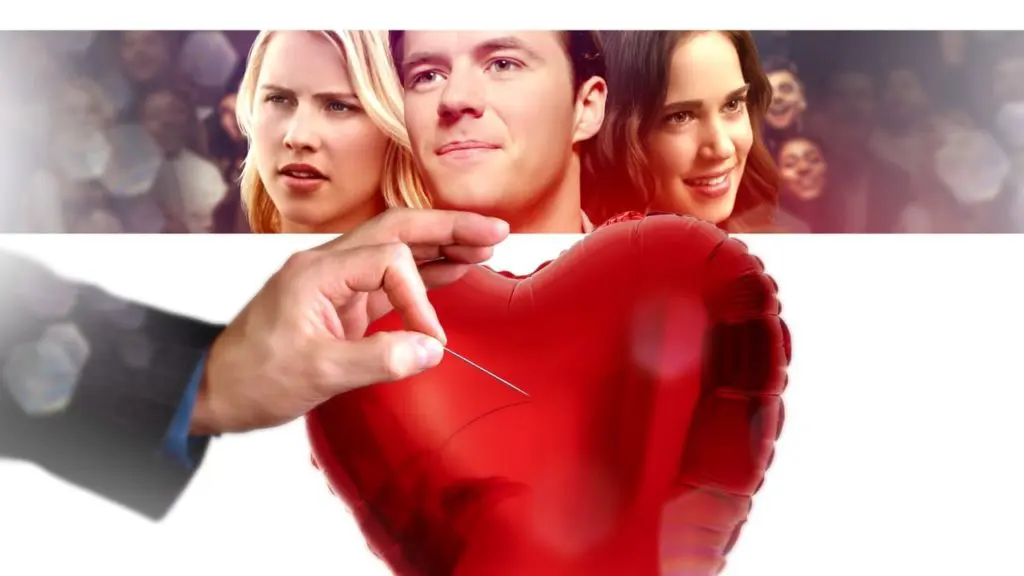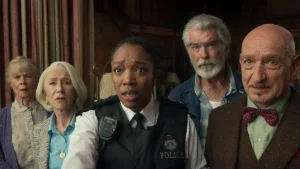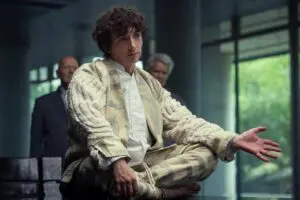Summary
The Divorce Party does nothing new, but it hits the expected beats with a fair amount of competence and warmth, bolstered by a witty screenplay.
Life is full of surprises, only a few of them pleasant, so a charming and simplistic rom-com like The Divorce Party should be appreciated, if only for knowing exactly what it is. The film is directed by Hughes William Thompson in the quietly competent way that impresses and surprises just by how well it does so very little.
When Nate (Thomas Cocquerel), a bland and mild-mannered nobody, is told by his wife Susan (Claire Holt) that their five strictly routine years of marriage are coming to an end, he’s forced to reassess who he is, what he wants from life, and what other people might want from him, which is, of course, routine preamble for a newer, healthier relationship gifted to him by a traditional and predictable screenplay courtesy of Mark Famiglietti and Lane Garrison, who also play two of Nate’s co-workers.

The titular divorce party is designed to celebrate Nate’s newly-single status, but he’s about as good at organising shindigs as he is at being newly single, so he turns to his divorcee friend Katie (Matilda Anna Ingrid Lutz, late of Revenge and still implausibly gorgeous) for help. That’s going where you might expect, but no matter. The Divorce Party is good at using its inherent unimaginativeness to put the audience at ease, letting them feel for these characters and their respective, universal plights. The film’s mundanity is one of its biggest strengths; most of us have had relationships deteriorate for reasons we don’t understand or for no reason at all, and we’ve all had to awkwardly hop the transom between sharing your life with someone else and suddenly having to retake that life for yourself.
Nate’s approach to finding himself takes some odd turns, the best of which is a burgeoning relationship with a gay man (Todd Lasance) which turns out to be one of the film’s warmer and more effective plot strands. There are brief meditations here on relationships and life and so on, but they’re surface-level; better are the script’s witty clip and the enjoyably naturalistic turns of the performers, who also include Tom Wright and, briefly, Will Brittain. There’s nothing at all new about The Divorce Party, even in genre terms, but it’s a confidently put-together diversion that’ll please those who’re looking for such a thing – perhaps the newly-single, as it happens.




